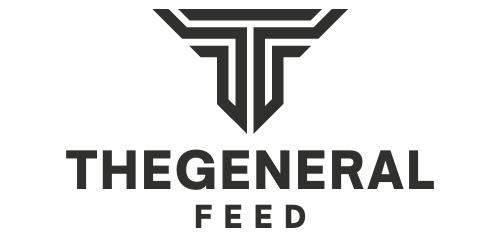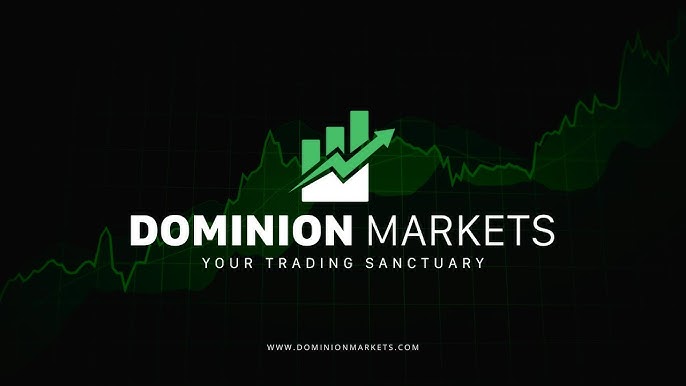Is Dominion Markets Regulated
The regulation of Dominion Markets is a bit complex:
- Dominion Markets claims to be a “fully licensed forex brokerage” on their website.
- However, they are only registered with the SVG Financial Services Authority (SVG FSA).
- The key point is that the SVG FSA does not regulate forex trading.
So, while Dominion Markets is registered with a financial authority, it’s not registered with one that oversees the specific activity they offer (forex trading). This lack of relevant regulation is a cause for concern.
Understanding Dominion Markets
Dominion Markets is a relatively new player in the world of online trading. Founded with the mission to provide a user-friendly platform for trading various financial instruments, Dominion Markets has quickly garnered attention from traders worldwide. Don’t Miss to Check Out Our Website: THEGENERAL FEED
History and Background
Dominion Markets was established to cater to both novice and experienced traders, offering a range of services that include forex, commodities, and cryptocurrency trading. Their platform is known for its intuitive interface and a suite of educational tools designed to help traders make informed decisions.

Services Offered
Dominion Markets provides access to a wide array of trading instruments. Their services include:
- Forex trading
- Commodity trading
- Cryptocurrency trading
- Educational resources
- Customer support
Target Audience
Dominion Markets aims to attract a diverse audience, from beginners looking to learn the ropes of trading to seasoned traders seeking a reliable platform with competitive spreads and advanced trading tools.
The Concept of Regulation in Financial Markets
What Regulation Means
Regulation in the financial markets refers to the oversight and rules set by governmental and independent agencies to ensure fairness, transparency, and security in trading activities. These regulations are designed to protect investors from fraud, ensure fair trading practices, and maintain the integrity of the financial system.
Why Regulation is Crucial for Traders and Investors
Regulation provides a safety net for traders and investors by:
- Ensuring the security of funds
- Promoting fair trading practices
- Offering mechanisms for dispute resolution
- Preventing fraudulent activities
Regulatory Bodies in the Financial Sector
There are several major regulatory bodies globally that oversee financial markets, including:
Major Global Regulatory Bodies
- Securities and Exchange Commission (SEC) in the United States
- Financial Conduct Authority (FCA) in the United Kingdom
- Australian Securities and Investments Commission (ASIC)
- Cyprus Securities and Exchange Commission (CySEC)
Their Roles and Responsibilities
These bodies are responsible for:
- Licensing and regulating financial firms
- Enforcing compliance with financial laws and regulations
- Protecting investors through surveillance and enforcement actions
- Providing a framework for market integrity
Dominion Markets’ Regulatory Status
Current Regulatory Status of Dominion Markets
As of now, Dominion Markets is not regulated by any major financial regulatory body. This means that they do not fall under the oversight of established authorities like the SEC or FCA. While they may operate legitimately, the lack of regulation means there are fewer safeguards in place for traders.
Comparisons with Regulated Brokers
Regulated brokers are required to adhere to strict guidelines and are subject to regular audits, ensuring higher levels of transparency and security. In contrast, unregulated brokers like Dominion Markets operate without such oversight, which can pose risks to traders.
Impact of Regulation on Traders
Security of Funds
Regulated brokers must adhere to stringent capital requirements and keep client funds in segregated accounts, ensuring that your money is safe even if the broker faces financial difficulties.
Fair Trading Practices
Regulated brokers are mandated to follow fair trading practices, reducing the risk of market manipulation and ensuring that trades are executed at fair prices.
Dispute Resolution
Regulatory bodies provide avenues for resolving disputes between traders and brokers, offering an additional layer of protection.
Pros and Cons of Trading with Regulated Brokers
Advantages of Regulated Brokers
- Enhanced security of funds
- Assurance of fair trading practices
- Access to dispute resolution mechanisms
- Greater transparency and trustworthiness
Potential Disadvantages or Limitations
- Sometimes higher costs due to regulatory compliance
- Potentially fewer trading instruments due to regulatory restrictions
- Slower account opening processes due to stringent verification
Risks of Trading with Unregulated Brokers
Common Risks Associated with Unregulated Brokers
- Higher risk of fraud and scam
- Lack of fund protection
- No assurance of fair trading practices
- Difficulty in resolving disputes
Real-World Examples
Numerous traders have fallen victim to scams perpetrated by unregulated brokers, losing significant amounts of money with little recourse for recovery.
How to Verify a Broker’s Regulatory Status
Steps to Check Regulation
- Visit the broker’s website and look for regulatory information.
- Check the regulatory body’s official website to verify the broker’s license.
- Look for third-party reviews and feedback on the broker.
Resources and Tools for Verification
- Official websites of regulatory bodies
- Financial services comparison websites
- User reviews on forums and social media
User Reviews and Experiences with Dominion Markets
Summary of User Feedback
User reviews of Dominion Markets are mixed. While some traders appreciate the platform’s user-friendly interface and range of trading instruments, others express concerns about the lack of regulation and associated risks.
Common Themes in User Reviews
- Positive feedback on the platform’s usability
- Concerns over fund security and trustworthiness due to lack of regulation
- Mixed experiences with customer support
Alternatives to Dominion Markets
Comparison with Other Brokers
When comparing Dominion Markets with other brokers, regulated options such as eToro, TD Ameritrade, and Interactive Brokers stand out due to their robust regulatory frameworks and extensive range of services.
Pros and Cons of Alternatives
eToro:
- Pros: Regulated by multiple authorities, social trading features
- Cons: Higher spreads on some instruments
TD Ameritrade:
- Pros: Extensive educational resources, strong regulatory status
- Cons: Limited cryptocurrency offerings
Interactive Brokers:
- Pros: Low trading fees, wide range of trading instruments
- Cons: Complex interface for beginners
Expert Opinions on Dominion Markets’ Regulation
Insights from Financial Experts
Experts generally advise caution when dealing with unregulated brokers like Dominion Markets. The absence of regulatory oversight means increased risks, and traders should be aware of the potential pitfalls.
Recommendations for Traders
Traders are encouraged to:
- Conduct thorough research before choosing a broker
- Prefer regulated brokers for enhanced security
- Stay updated on industry news and broker status changes

Steps Dominion Markets Could Take to Become Regulated
Potential Paths to Regulation
To become regulated, Dominion Markets would need to:
- Apply for licenses from relevant regulatory bodies
- Comply with stringent regulatory requirements
- Undergo regular audits and reporting
Benefits of Becoming Regulated
Becoming regulated would enhance Dominion Markets’ credibility, attract more traders, and provide greater security and peace of mind for their clients.
Conclusion
In summary, while Dominion Markets offers a range of appealing services, the lack of regulation is a significant concern. Traders must weigh the risks and benefits carefully and consider opting for regulated brokers to ensure the security and fairness of their trading activities.
FAQs
What are the signs of a regulated broker?
A regulated broker will typically display their regulatory information prominently on their website, provide license numbers, and be listed on the official website of the regulatory body.
How can I protect myself when trading with an unregulated broker?
If you choose to trade with an unregulated broker, ensure you conduct thorough research, start with small amounts, and stay vigilant for any signs of fraud or unfair practices.
Are there any benefits to trading with unregulated brokers?
Unregulated brokers may offer more flexible trading conditions, such as higher leverage and a wider range of trading instruments, but these come with increased risks.
What should I do if I encounter issues with Dominion Markets?
If you face issues with Dominion Markets, document all communications, attempt to resolve the matter with their support team, and consider seeking advice from financial forums or legal experts.
How can I stay updated on a broker’s regulatory status?
Regularly check the broker’s website for updates, follow financial news, and utilize resources like regulatory body websites and financial comparison sites.

Welcome to TheGeneralFeed.ca, where Lucas brings a fresh perspective to the world of news and information!
Lucas is a dynamic writer who is passionate about delivering compelling content that informs, engages, and inspires our readers. With a keen interest in a wide range of topics, including current events, technology, lifestyle, and more, Lucas keeps our audience informed and entertained with his insightful articles.


